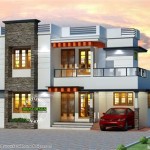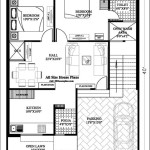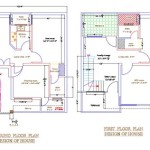Essential Aspects of Smokehouse Plans For Refrigerators
For those who enjoy the tantalizing flavors of smoked meats, seafood, and cheeses, building a smokehouse into your refrigerator can be a rewarding culinary experience. However, meticulous planning and understanding of the essential aspects are crucial for success.
Ventilation and Airflow
Proper ventilation is paramount for effective smoking. Smokehouse plans should incorporate dedicated air intake and exhaust vents. The intake vent allows for airflow to draw smoke from the firebox into the smoke chamber, while the exhaust vent releases smoke and heat.
Insulation
Adequate insulation is essential for maintaining consistent internal temperatures. The smokehouse should be well-insulated to retain heat and prevent temperature fluctuations. This ensures even smoking and prevents over-drying.
Firebox Design
The firebox is the heart of the smokehouse, responsible for generating smoke. Plans should include a well-designed firebox that provides efficient combustion and minimal creosote buildup. Factors to consider include firebox size, shape, and fuel type.
Smoke Chamber
The smoke chamber is where the food is placed for smoking. Its size and shape will depend on the intended capacity and the types of food being smoked. Plans should ensure adequate space for food placement and smoke circulation.
Temperature Control
Accurate temperature control is crucial for precise smoking. Plans should include provisions for monitoring and adjusting temperatures. This can be achieved through a thermometer, temperature controller, or vents that allow for airflow regulation.
Fuel Source
Smokehouse plans should specify the intended fuel source, whether it be wood, charcoal, or gas. Each fuel type has its own characteristics that influence smoke flavor, combustion efficiency, and maintenance requirements.
Safety Features
Safety should be a primary consideration in smokehouse plans. Smokehouses generate heat and smoke, so precautions should be taken to prevent fires or gas leaks. Proper ventilation, fire alarms, and carbon monoxide detectors are essential safety features.
Materials and Construction
The materials used in smokehouse construction should be durable and food-safe. Common materials include stainless steel, aluminum, or galvanized steel. Plans should specify the thickness and quality of materials to ensure longevity and performance.
Additional Considerations
Additional considerations to enhance the smokehouse experience include lighting for visibility, racks or hooks for hanging food, and an optional water pan for moisture control. Thoughtful planning of these aspects will contribute to the overall success and enjoyment of your smokehouse refrigerator.

Turn An Old Fridge Into A Smoker Diy Projects For Everyone

Make A Smoker That Looks Nice And Works Well Build It With The Stuff You Already Have Old Refrigerator Plans Diy

Turn An Old Fridge Into A Smoker Diy Projects For Everyone

How To Build A Fridge Smoker Diy Custom Smokers

Diy Convert An Old Refrigerator Into A Meat Smoker Or Smoke Cooker

How To Build An Industrial Size Bbq Smoker From Old Refrigerator Construction Repair Wonderhowto

Wood Fired Fridge Smoker Smoking Meat Forums The Best Forum On Earth

Cowgirl S Country Life Building A Cold Smoker Smokehouse

Diy Convert An Old Refrigerator Into A Meat Smoker Or Smoke Cooker

Refrigerator Smoker Homemade Meat Build A








